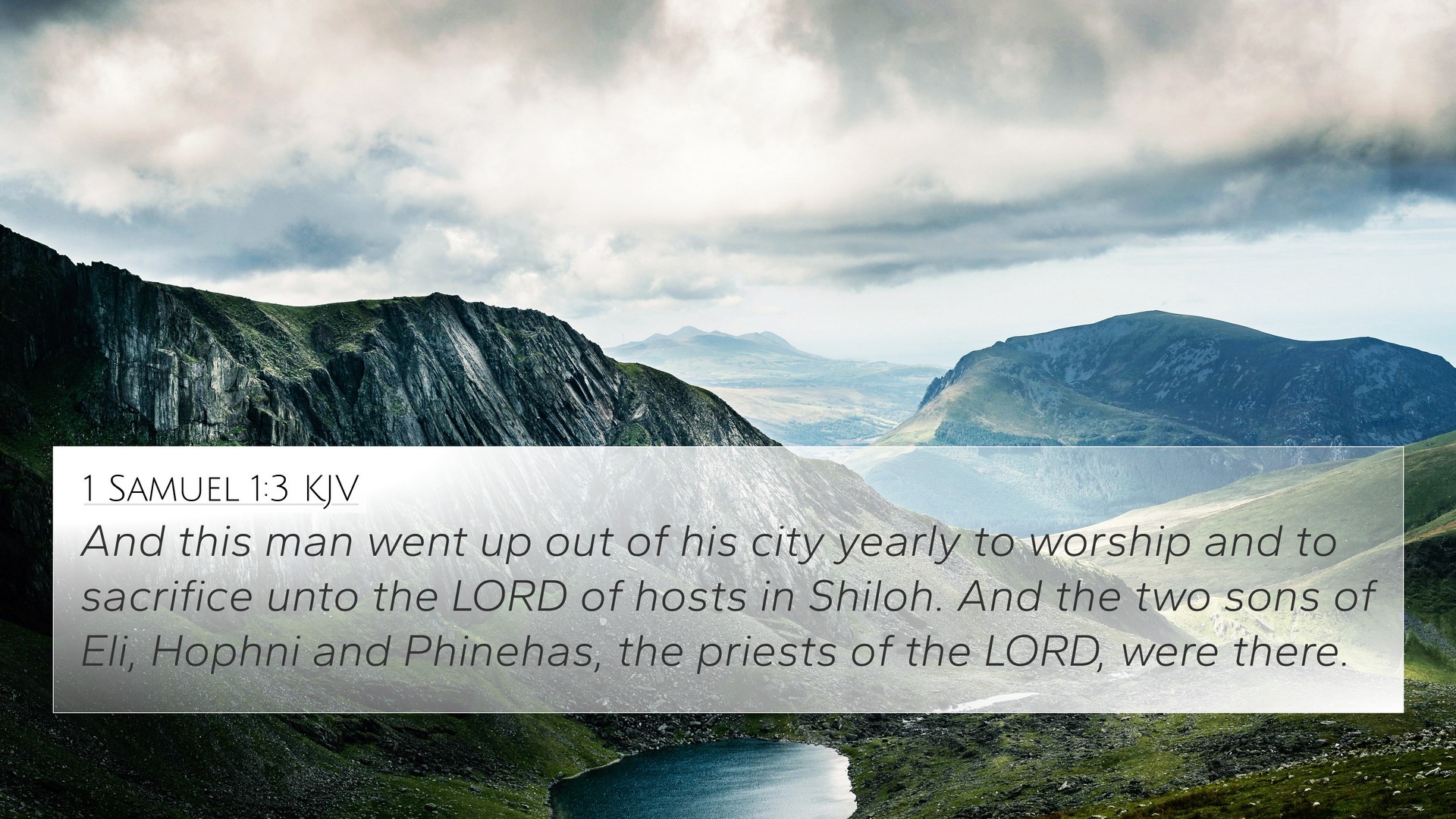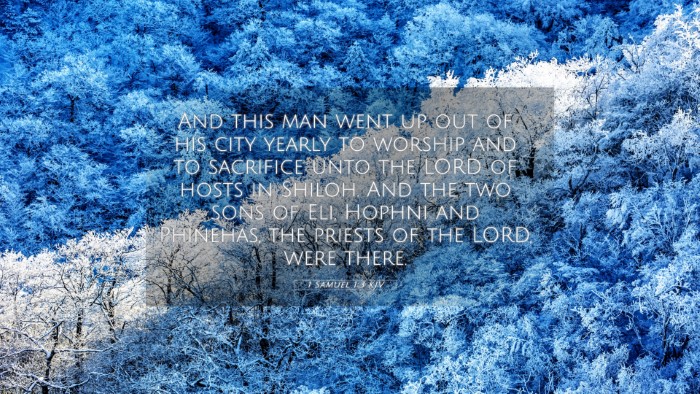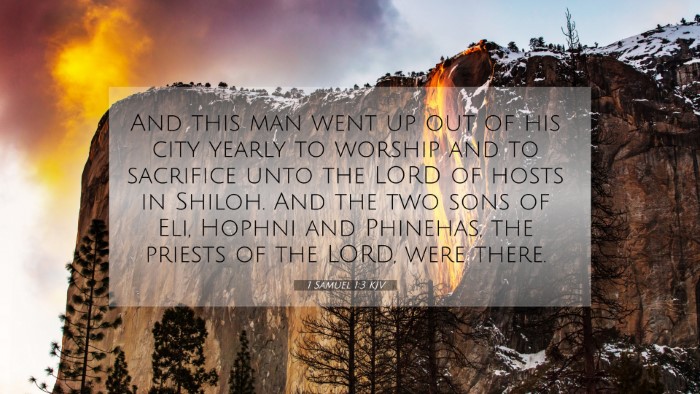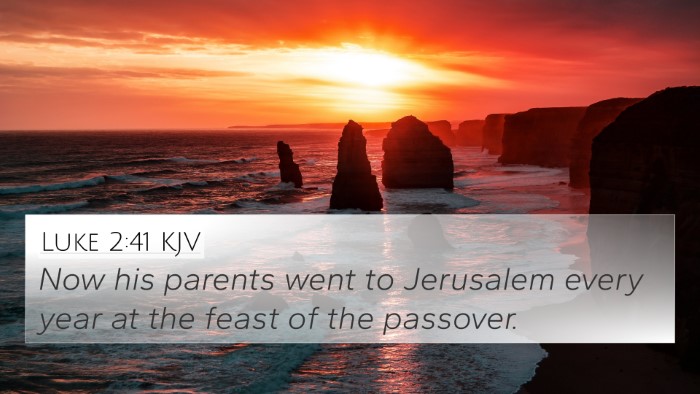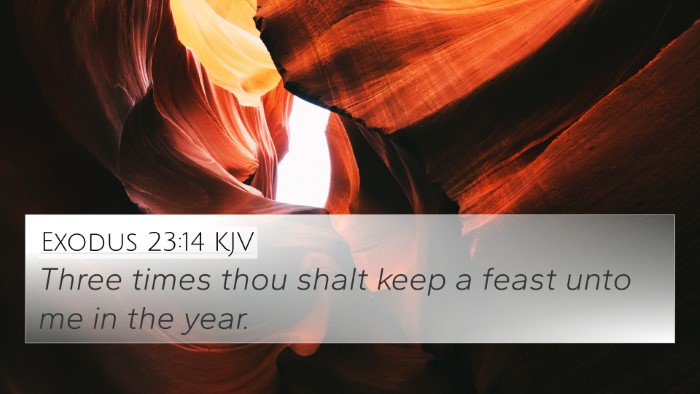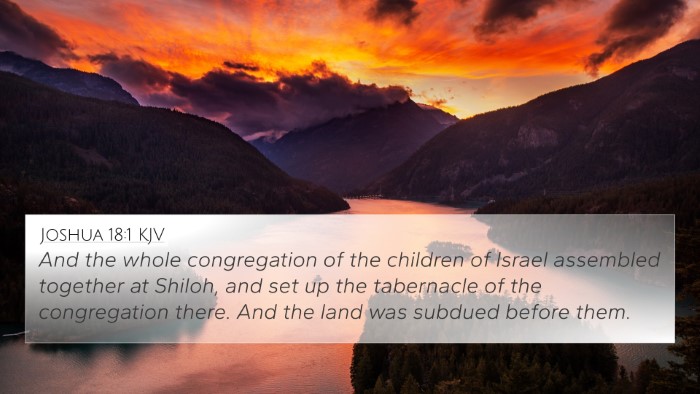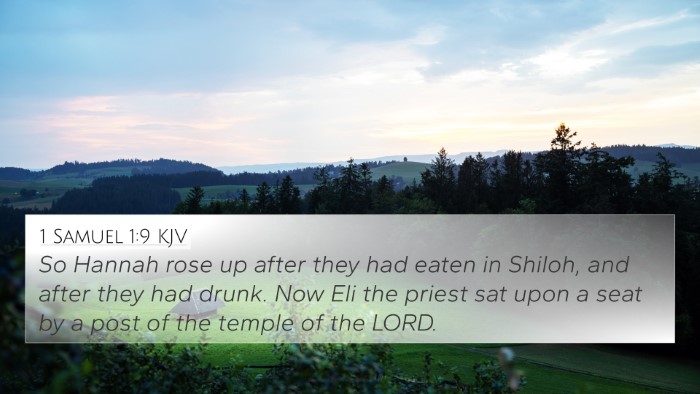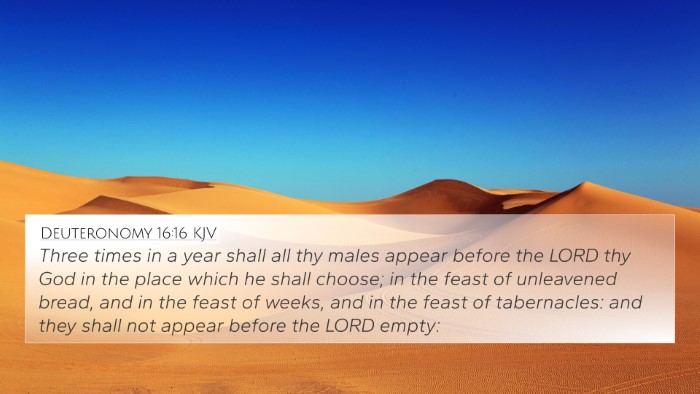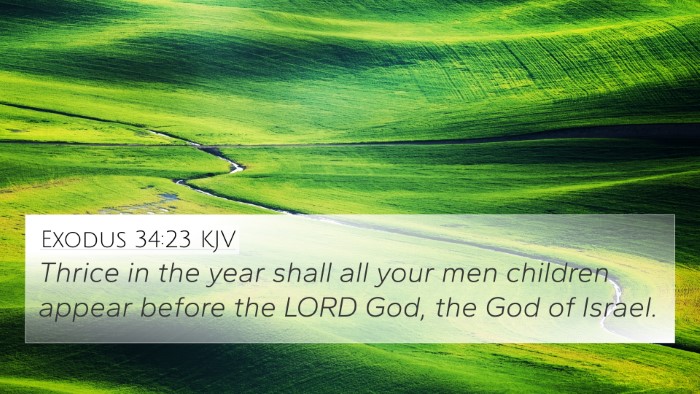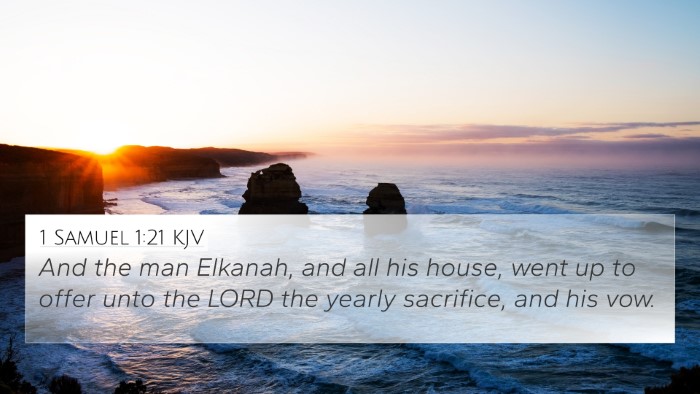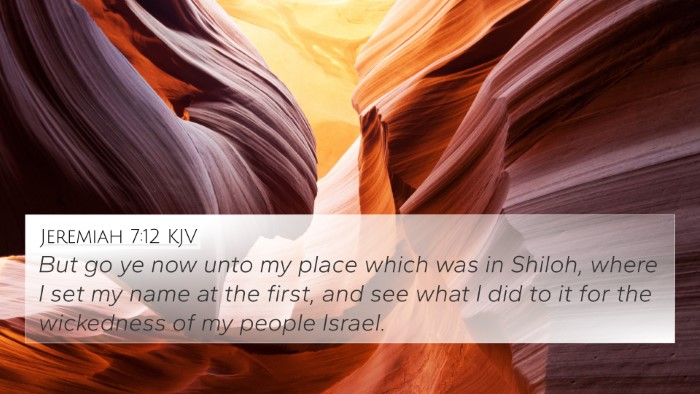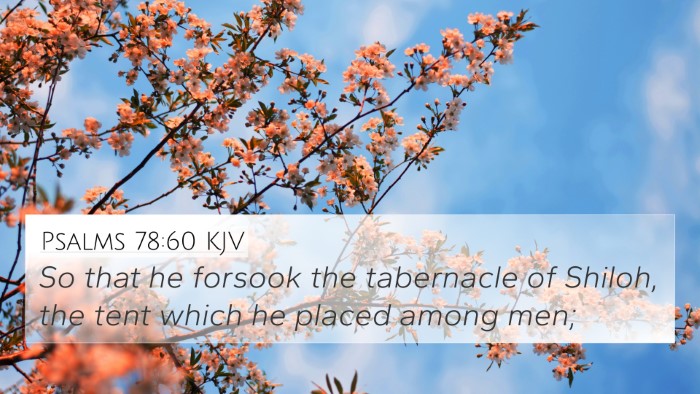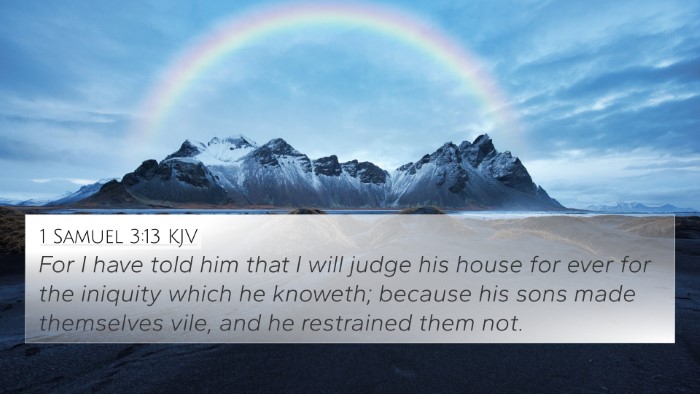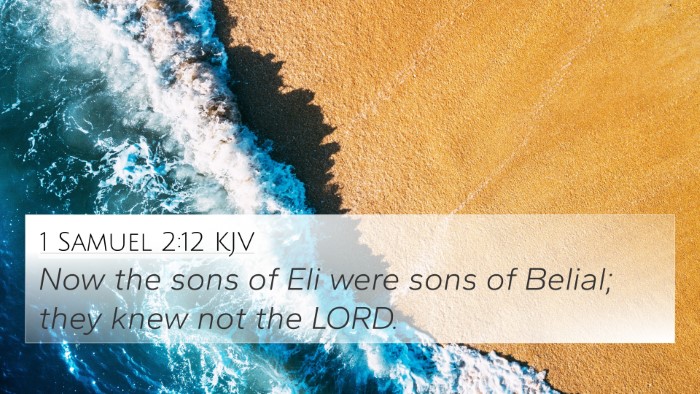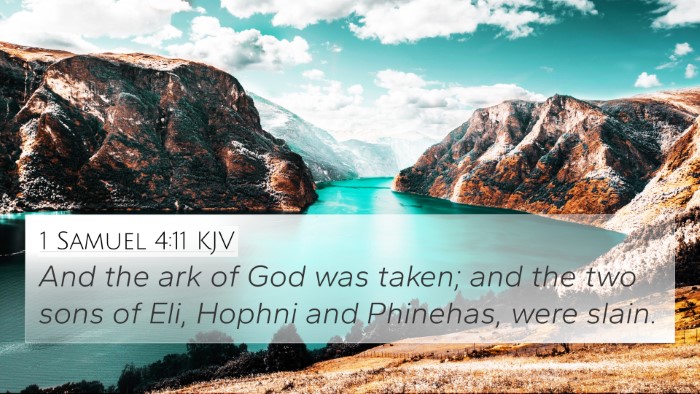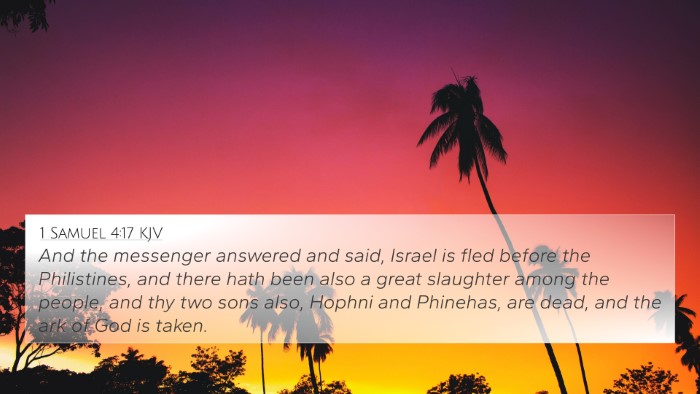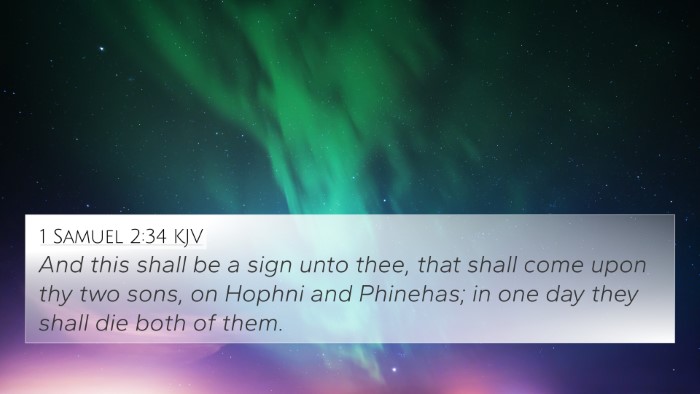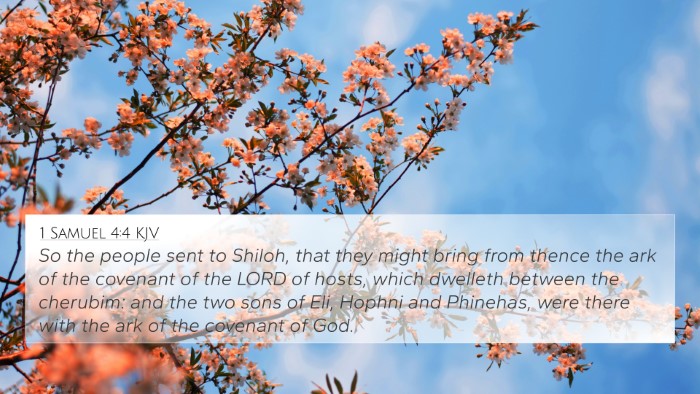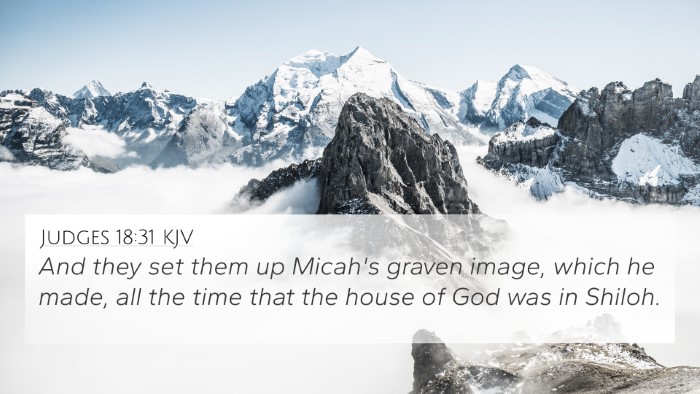Understanding 1 Samuel 1:3
1 Samuel 1:3 states, "Now this man used to go up year by year from his city to worship and to sacrifice to the Lord of hosts at Shiloh, where the two sons of Eli, Hophni and Phinehas, were priests of the Lord." This verse provides the context for the story of Hannah, emphasizing the significance of worship and the centrality of Shiloh as a place of sacrifice and prayer during the period of the Judges. In this exploration, we will draw insights from respected public domain commentaries including those of Matthew Henry, Albert Barnes, and Adam Clarke.
Contextual Significance
This verse is pivotal as it uncovers the faithful practice of worship in the life of Elkanah, the father of Samuel. Commentators like Matthew Henry often emphasize the importance of consistent worship in our lives, highlighting that Elkanah made yearly sacrifices, reflecting his commitment to God. He observed the Mosaic Law, which required the Israelites to offer sacrifices in a centralized location, Shiloh, where the Ark of the Covenant resided.
Albert Barnes points out that Elkanah's faithfulness was particularly significant given the corruption of Eli's sons, Hophni and Phinehas, who served as priests. Their actions are later depicted as dishonorable, which foreshadows the need for God to raise a faithful servant, Samuel. Essentially, this sets the stage for a key transition in Israel's leadership.
Religious Practices and Cultural Context
In the Israelite culture, worship involved specific times and locations, and Shiloh served as the primary sanctuary before the establishment of the temple in Jerusalem. Adam Clarke discusses the prevalence of idol worship during this time, suggesting that the choice to worship at Shiloh indicated a dedication to God amidst a society rife with religious compromise.
Theological Implications
This passage highlights several theological themes:
- Worship as a Central Act: Elkanah’s yearly pilgrimage symbolizes the importance of dedicated worship—the act of expressing reverence and seeking communion with God.
- Divine Sovereignty: By establishing Shiloh as the place of worship, God demonstrates His authority and presence among His people, despite the unfaithfulness of their leaders.
- Faithfulness in Adversity: Elkanah’s commitment to worship in the face of corrupt priesthood serves as an exemplar for believers today: to remain steadfast in faith regardless of surrounding influences.
Bible Verse Cross-References
This verse is interconnected with various other scriptures that speak on themes of worship, leadership, and divine intervention. Consider the following references:
- Deuteronomy 12:5-7: Instructions for centralized worship.
- Joshua 18:1: Shiloh as a place where Israel gathered.
- 1 Samuel 2:12-17: The wickedness of Hophni and Phinehas.
- Psalm 122:1: The joy of going to the house of the Lord.
- Hebrews 10:25: The importance of not forsaking the assembling of believers.
- 1 Corinthians 3:16: Believers as the temple of the Holy Spirit.
- Luke 2:41-42: Jesus' annual visit to the Passover feast in Jerusalem, reflecting a culture of faithful worship.
- 2 Timothy 3:16: The usefulness of Scripture for teaching and correction.
- James 1:27: True religion defined as visiting orphans and widows, implying service in worship.
- Revelation 21:3: The promise of God dwelling with His people, a culmination of what began in Shiloh.
Thematic Bible Verse Connections
The themes encapsulated in 1 Samuel 1:3 resonate throughout scripture. When we analyze other verses, we see:
- Cross-referencing with Isaiah 1:13-14 showcases God’s call for true worship absent of hypocrisy.
- Matthew 5:23-24 addresses the importance of reconciliation within worship, echoing the relational aspect of offerings.
- Connecting with Acts 2:46 supports the communal nature of worship as seen in Shiloh and later Christian gatherings.
- Romans 12:1 calls believers to present their bodies as living sacrifices, reflecting a continuation of worship outside temple confines.
Conclusion
1 Samuel 1:3 not only serves to articulate an initial scene in the life of Samuel but is a significant reminder of the heart of worship and the importance of community among believers. As we engage in cross-referencing, we deepen our understanding of the biblical narrative and the interrelationships between various scriptures. By exploring themes of worship, faithfulness, and divine purpose, we build stronger theological foundations that can guide our lives and ministries.
